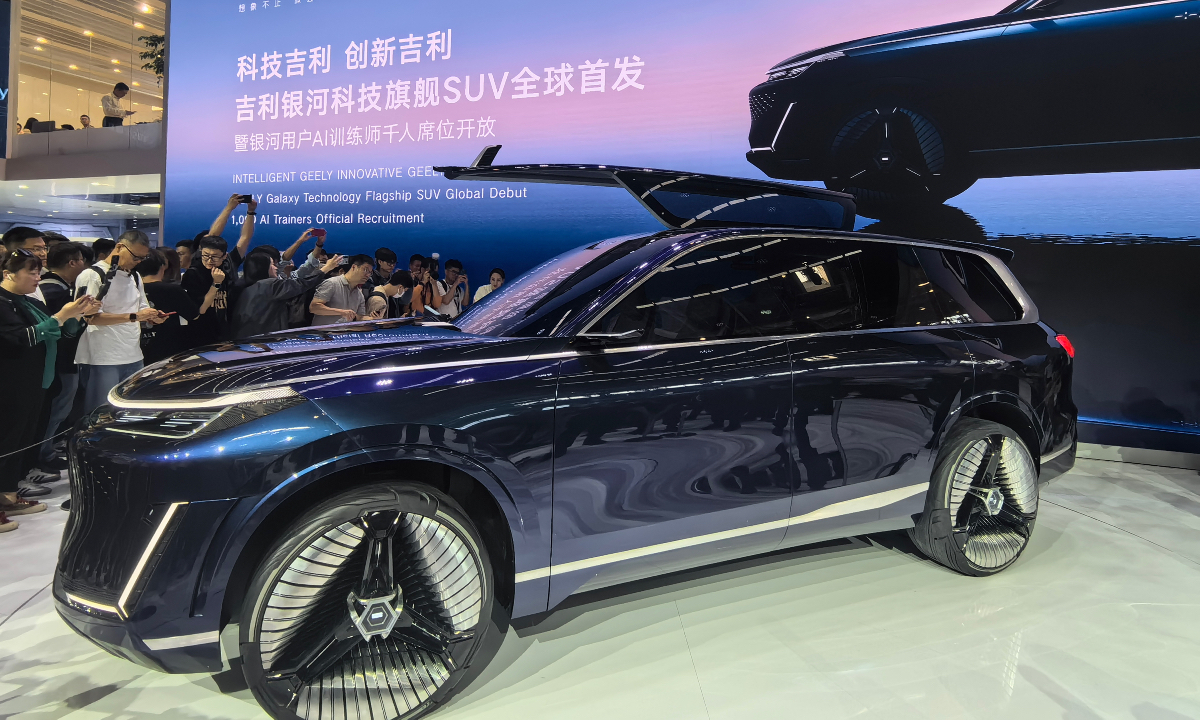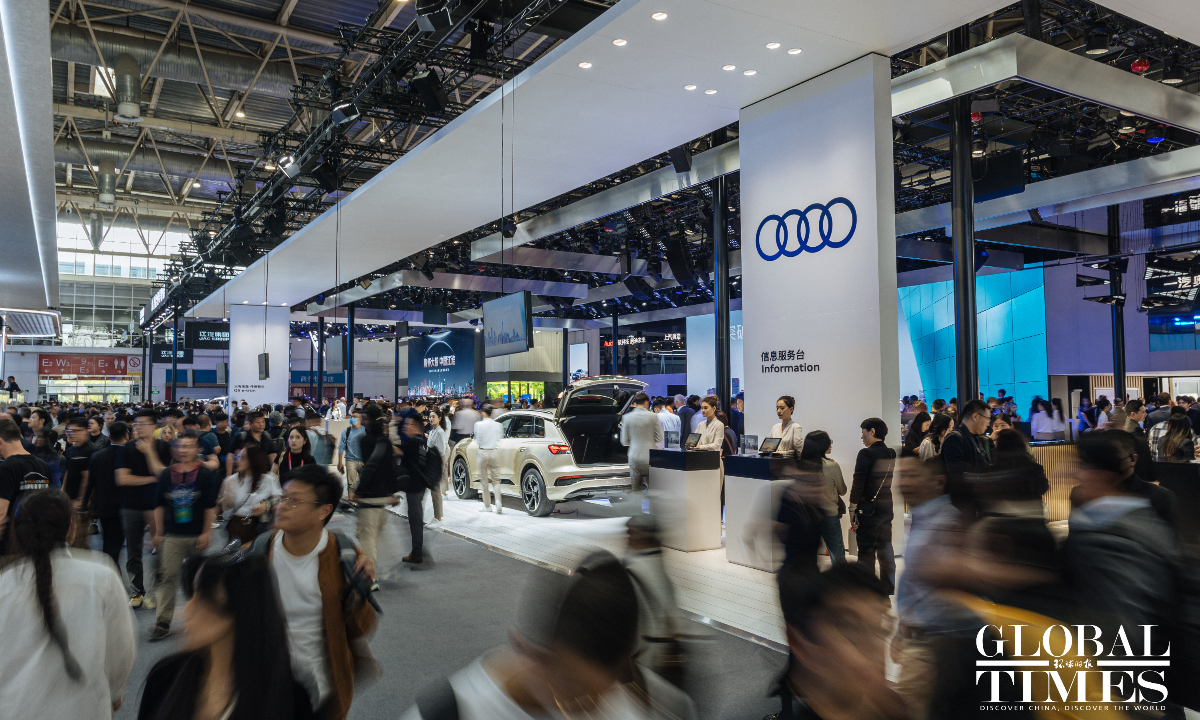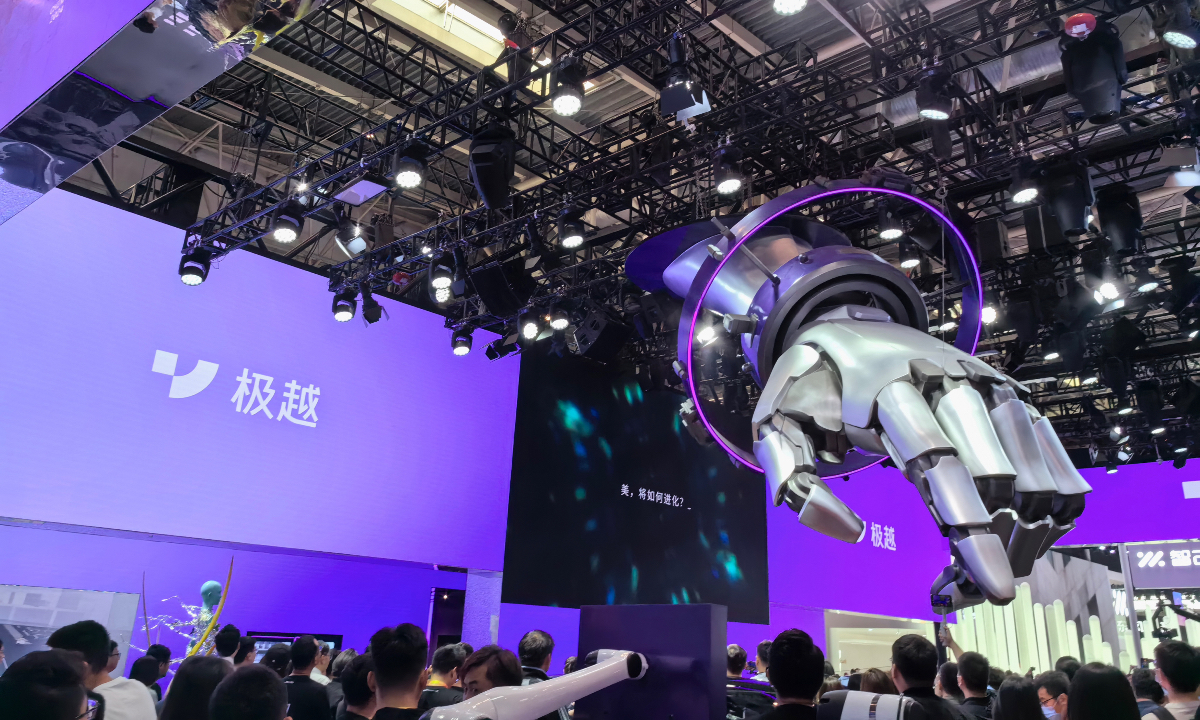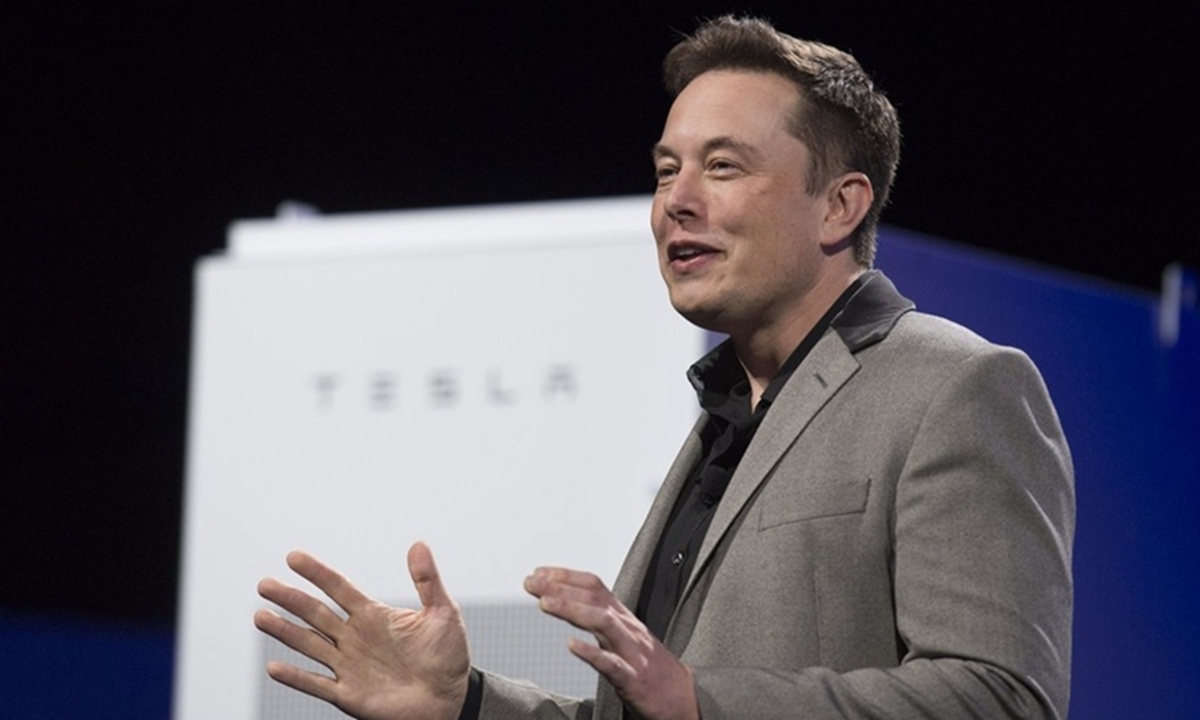Auto insiders emphasize global cooperation as foreign companies eye partnerships in smart, intelligent vehicles
Foreign companies eye partnerships with Chinese firms in smart, intelligent vehicles

A product launch event by Geely at the Beijing International Automotive Exhibition on April 25 Photo: Zhang Yiyi/GT
Industry insiders and company representatives at the ongoing Beijing International Automotive Exhibition emphasized the importance of global cooperation in the upcoming age of smart and intelligent vehicles, as more foreign companies announced plans to deepen cooperation with Chinese partners.
The comments came as the China calls for more efforts to develop intelligent connected cars.
Chinese Premier Li Qiang on Sunday stressed developing intelligent connected new-energy vehicles (NEVs) and making the auto industry more high-end, smarter and greener, according to the Xinhua News Agency.
A number of foreign carmakers from Volkswagen to Toyota have announced in recent days their plans to work with Chinese partners in the new-energy vehicle sector, demonstrating their commitment to the Chinese market. They also aim to get firsthand experience as the Chinese auto market is shifting toward an era dominated by intelligent connected vehicles that feature smart and intelligent technologies.
Chinese industry insiders have welcomed this trend, noting that the smart transition needs globalized efforts.
"No single enterprise can dominate the market, nor can any single technology dominate the global market. Only through open cooperation and forging strengths can we win the future," Zhang Yongwei, vice chairman of the China EV100, told the Global Times on Sunday.
Competition in the Chinese automotive industry comes from the area of smart technologies, which involve intelligent driving and vehicle-road-cloud collaboration, Zhang noted.
Smart technologies have taken center stage at the Beijing auto show, with companies from China and abroad displaying 278 NEVs, many of which feature cutting-edge technologies ranging from artificial intelligence (AI) to autonomous driving to high-performance batteries, according to the organizers.
Global automakers, including Volkswagen and Toyota, are attending the 2024 Beijing auto show with the aim of closing the gap with China's dominant EV manufacturers in the world's largest auto market, according to industry observers. Some foreign manufacturers' attitudes have shifted, and they are now actively seeking Chinese partners and launching new cooperation initiatives.
BMW announced that it would invest an additional 20 billion yuan ($2.82 billion) in its Shenyang production base in Northeast China's Liaoning Province, bringing total investment in the plant to about 105 billion yuan to produce EVs. The company expects the new funding to make the manufacturing industry in the region smarter, greener and more efficient, the company said on its blog on Saturday.
On Thursday, Toyota officially announced a strategic partnership with Chinese technology giant Tencent to leverage the latter's AI models, cloud and digital ecosystem by applying them to passenger vehicles manufactured in China.
Tencent said in a statement sent to the Global Times on Sunday that the partnership aims to create "more consumer-centric" products and services and to jointly build mobility solutions.
On April 24, Volkswagen announced in a press release that Hefei-based Volkswagen China Technology Co is developing the group's first electric platform specifically for China and the company is eyeing at least four new models for the electric entry-level segment on new platforms from 2026.
Volkswagen announced in mid-April plans to invest 2.5 billion euros ($2.67 billion) to expand its production and innovation hub in Hefei, capital of East China's Anhui Province. Hefei has a high concentration of companies on the NEV supply chain.
In February, Volkswagen announced that it was jointly developing an electric sport utility vehicle with its Chinese EV partner XPeng, with a joint sourcing program to reduce costs.
Chinese analysts said foreign companies are jumping onto the bandwagon of Chinese NEVs as they see this as a precious opportunity to be among the companies to lead the future, with the automobile industry experiencing a transition toward smart and intelligent vehicles.
China's leading status in the NEV race and world-leading infrastructure that enables the development of the NEV industry means that if foreign companies do not participate in the Chinese market, they risk being left out of the green vehicle transition, they noted.
In November 2023, China's Ministry of Industry and Information Technology, along with three other ministries, issued a notice on conducting pilot programs for intelligent connected vehicles. These initiatives aim to guide manufacturers to enhance their capabilities, ensure safety and promote the high-quality development of the intelligent connected vehicle industry.




